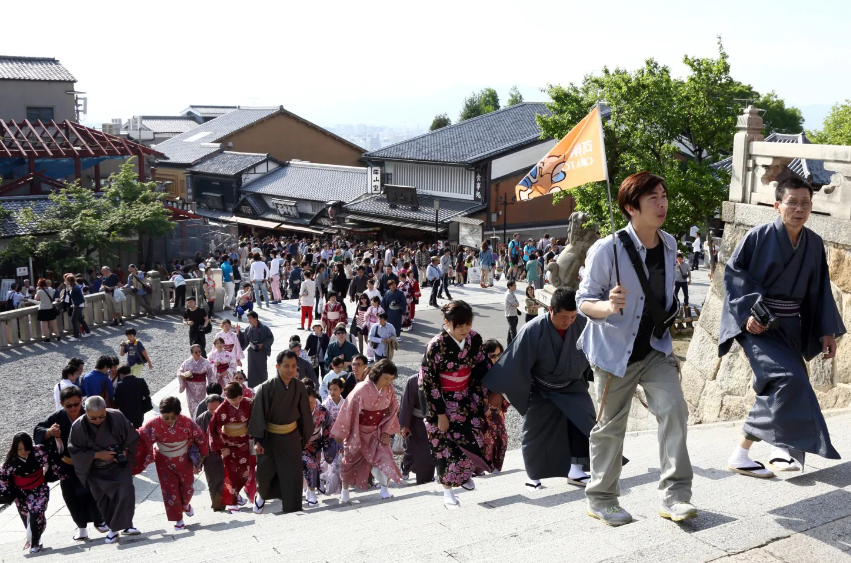(单词翻译:单击)
Japan's traditional sense of "omotenashi", meaning to wholeheartedly look after guests, is wearing decidedly thin as residents of many of the nation's must-see tourist spots increasingly express their frustration at loud and disrespectful foreigners, crowded public transport and poor etiquette among visitors.
日本传统意义上的“款待”文化--即全心全意、毫无保留地招待客人--显然正日渐式微,因为该国许多必看旅游景点的居民对大声喧哗且失礼的外国人、拥挤的公共交通和游客糟糕的礼节日益感到沮丧。
The problem has become so bad in some towns, such as the ancient capitals of Kyoto and Kamakura, that local people are complaining to their local authorities about "tourism pollution".
这个问题在一些城镇--譬如在京都和镰仓等古都--已经变得如此严重以至于当地民众向地方当局抱怨游客造成了“旅游污染”。
Locals say it is difficult to get on buses that go near the most famous sights, while demand for accommodation has encouraged unscrupulous landlords to lease out unlicensed properties.
当地民众说,在最有名的景点附近,人们很难坐上公交车。与此同时,住宿需求促使无良房主出租未获得许可的房产。

Foreign tourists also are often unaware of local customs -- such as meticulously separating rubbish before it is collected -- which has added to the friction with local people.
外国游客往往也不了解当地的风俗--比如在垃圾被收走之前应该一丝不苟地将其分类--这增加了他们与当地人的摩擦。
The city's tourism authorities say they are aware of the problems and are taking measures to reduce discord between locals and visitors.
城市的旅游部门表示,他们意识到了这些问题,并且正在采取措施来减少当地人和游客之间的不和谐。
More than 20 million foreign tourists arrived in Japan in the first eight months of the year and the annual total is expected to break the 30 million barrier, up from 28.7 million arrivals last year.
今年1-8月,到日本旅游的外国游客超过2000万人次,预计全年的外国游客总数将突破3000万人次,比去年的2870万人次有所增加。


